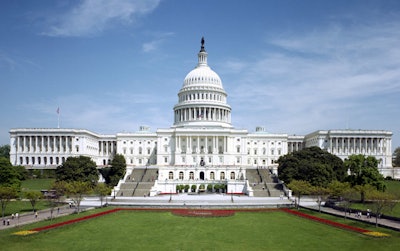
House Republicans have unveiled sweeping legislation that would dramatically reshape federal student aid programs, potentially making college more expensive for millions of students while cutting federal spending by an estimated $185 billion over the next decade.
The 103-page bill, released as part of the GOP's reconciliation legislation, targets several key financial aid programs that disproportionately serve low-income and underrepresented students. Education advocates warn these changes could create new barriers to higher education access and completion.
Among the most significant proposals is a change to Pell Grant eligibility requirements. Students would need to take 30 credit hours per academic year—approximately 15 hours per semester—to receive the full grant, up from the current 12-hour requirement.
"While we support initiatives to reduce the time it takes for students to attain a degree, this approach may jeopardize time to completion for students who work part time," said Kim Cook, chief executive of the National College Attainment Network. "By increasing students' unmet financial need, this proposal will also drive-up student borrowing for millions."
The National College Attainment Network estimates this change would impact approximately one-quarter of current Pell Grant recipients. Additionally, students taking fewer than six credit hours would lose eligibility entirely, affecting those needing just a single class to graduate.
The legislation would also eliminate subsidized loans, which currently spare undergraduate students from accruing interest while in school. The bill includes a three-year exemption for students enrolled as of June 30, 2026, but future students would face higher costs.
"House Republicans propose charging low-income students more interest by ending the subsidized loan program for students with financial need," said Abby Shafroth, co-director of advocacy at the National Consumer Law Center (NCLC).
The PLUS Loan program for graduate students would be eliminated, capping borrowing at $100,000 for master's degree students and $150,000 for those pursuing medical or law degrees.
Perhaps most controversially, the bill would dramatically alter student loan repayment options, reducing the current four plans to just two: a standard 10-year plan or a single income-driven repayment plan. This would effectively end President Biden's Saving on a Valuable Education (SAVE) plan, which is currently being litigated.
The NCLC warns that the proposed changes would "more than triple monthly bills for borrowers currently enrolled in SAVE" and require "that even families living below the poverty line reallocate $120 each year from funds that would otherwise go towards food, rent, or medication or face default."
The new income-driven plan would require borrowers to pay 15% of their income above 150% of the federal poverty line—a substantial increase for those currently in IDR plans. Borrowers would also face longer repayment periods: 20 years for undergraduate borrowers and 25 years for those with any graduate loans.
For future borrowers, the situation could be even worse. The proposed "Repayment Assistance Plan" would require many to make payments for 30 years before qualifying for loan forgiveness—far longer than current plans, which offer cancellation after 10 to 25 years.
"The changes in this bill will add to the growing number of low-income older adults still burdened by student loan debt and will make it more likely that low-income Americans will still be paying student loans for their own education when their children are in college," warned Kyra Taylor, a senior attorney at NCLC.
The legislation would also roll back regulations designed to help students who have been victims of school fraud or closures. According to the NCLC, the bill "rolls back common-sense regulations that would streamline relief for borrowers where the Department of Education has evidence that the school lied and used deception to enroll students in low-quality programs and borrowers that did not complete their program because their school closed."
The impact to students, particularly students of color, is outlined in a forthcoming book titled The Student Debt Crisis: America's Moral Urgency, written by Dr. Jamal Watson, a Diverse editor and professor and associate dean of graduate studies at Trinity Washington University.
House Education and Workforce Committee Chairman Tim Walberg (R-MI) has been tasked with finding $330 billion in savings as part of the Republican effort to cut $1.5 trillion in spending to pay for President Trump's proposed tax cuts and increased defense and border security spending.
While the bill is advancing in the Republican-controlled House, it could face resistance in the Senate, where the GOP majority is narrow.
Advocates emphasize that these changes would disproportionately impact first-generation college students, working adults, and historically underrepresented groups in higher education.















